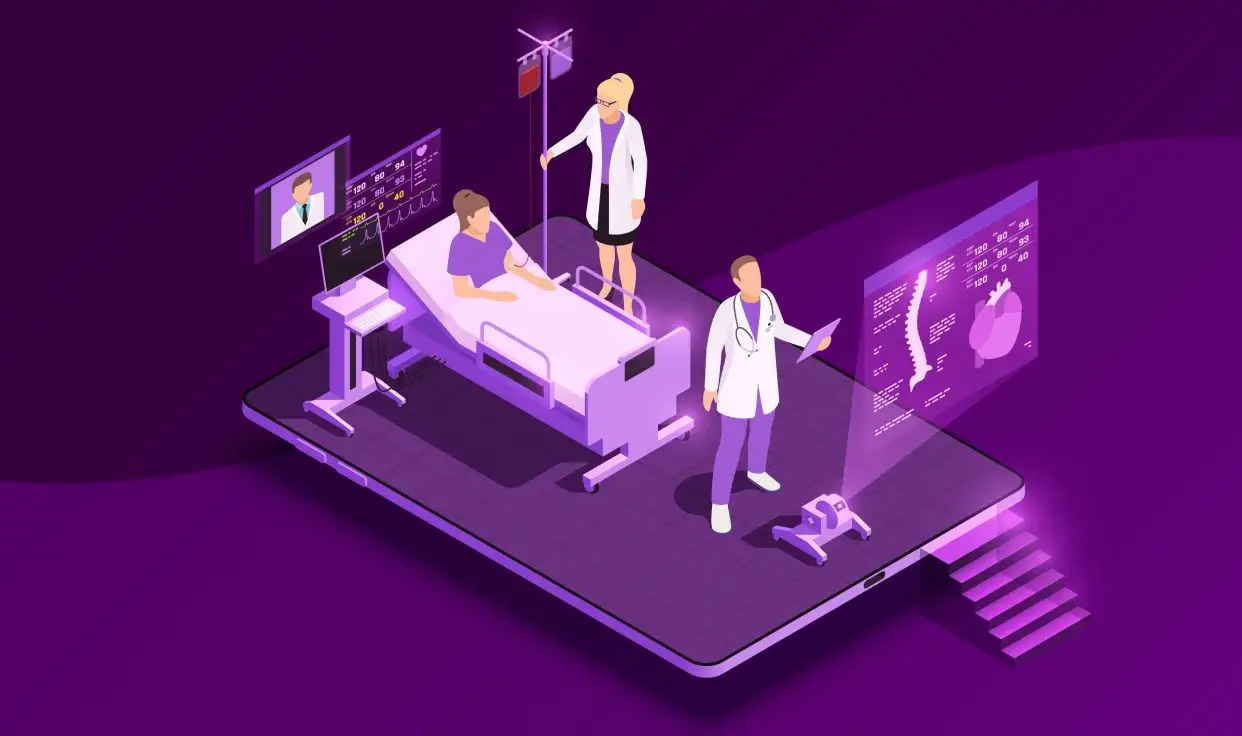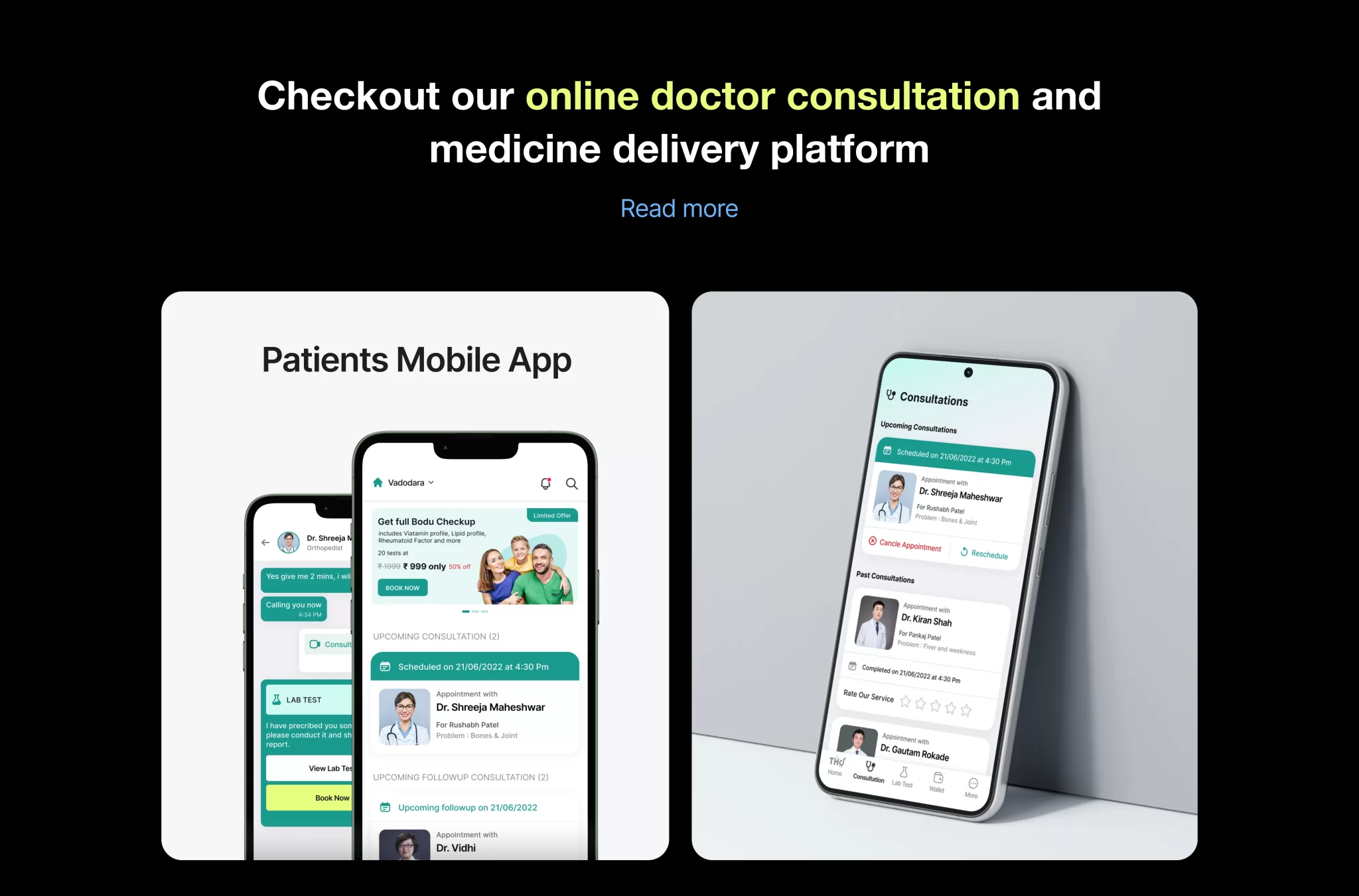The Future of Digital Healthcare Shaped by Digital Transformation
Digital transformation in healthcare : Is revolutionizing the healthcare industry, paving the way for a future where technology plays a strategic role in every aspect of our lives. This transformation has enabled medical facilities to streamline their processes, optimize their work, and collect and analyze vast amounts of data like never before. With the widespread adoption of mobile and wearable technologies, healthcare solutions are becoming more accessible and convenient for individuals worldwide. In this article, we will explore the various ways in which digital transformation is shaping the future of healthcare.
Unleashing the Power of Digital Transformation in Healthcare
Digital transformation refers to the integration of digital technologies into healthcare systems to improve patient care, enhance operational efficiency, and drive innovation. It encompasses a wide range of technologies, including electronic health records (EHRs), telehealth, mobile apps, artificial intelligence (AI), Internet of Things (IoT), and data analytics. The aim is to leverage these technologies to provide personalized, efficient, and accessible healthcare services.
2. Enhancing Patient Care with Digital Solutions
2.1 Telehealth and Virtual Care
Telehealth has emerged as a game-changer in healthcare delivery. It allows patients to connect with healthcare providers remotely, eliminating the need for in-person visits. Virtual consultations, remote monitoring, and telemedicine have become increasingly popular, especially in rural areas or for individuals with limited mobility. The convenience and accessibility of telehealth services have revolutionized the way patients receive care.
2.2 Wearable Technologies
The rise of wearable technologies, such as fitness trackers and smartwatches, has empowered individuals to monitor their health and wellness continuously. These devices can track vital signs, physical activity, sleep patterns, and even detect potential health risks. With real-time data collection and analysis, healthcare providers can gain valuable insights into a patient’s well-being and offer personalized recommendations for preventive care.
2.3 AI and Machine Learning in Diagnosis and Treatment
Artificial intelligence and machine learning algorithms have the potential to transform the field of diagnostics and treatment planning. These technologies can analyze vast amounts of patient data, medical literature, and clinical guidelines to assist healthcare professionals in making accurate diagnoses and developing personalized treatment plans. AI-driven tools can also predict disease progression, identify high-risk patients, and optimize medication management.
3. Streamlining Healthcare Operations
3.1 Electronic Health Records (EHRs)
The transition from paper-based medical records to electronic health records (EHRs) has significantly improved the efficiency and accuracy of healthcare operations. EHR systems enable healthcare providers to access patient information securely, share data across different departments, and facilitate seamless communication between healthcare professionals. This digitalization of medical records minimizes errors, reduces paperwork, and enhances collaboration among healthcare teams.
3.2 Data Analytics and Predictive Modeling
The availability of large datasets in healthcare has opened up new opportunities for data analytics and predictive modeling. By leveraging advanced analytics techniques, healthcare organizations can gain insights into population health trends, identify disease outbreaks, and allocate resources more effectively. Predictive modeling can help in early detection of diseases, enable proactive interventions, and improve patient outcomes.
4. Ensuring Data Security and Privacy
As the healthcare industry embraces digital transformation, ensuring data security and privacy becomes paramount. The sensitive nature of healthcare data requires robust security measures to protect patient information from unauthorized access or breaches. Healthcare organizations must comply with stringent data protection regulations, implement encryption techniques, and establish secure communication channels to maintain patient trust and confidentiality.
5. The Future of Healthcare: Opportunities and Challenges
5.1 Opportunities for Innovation and Collaboration
Digital Transformation in Healthcare opens up a world of opportunities for innovation and collaboration within the healthcare ecosystem. Startups, tech companies, and healthcare providers can come together to develop cutting-edge solutions, such as remote patient monitoring systems, AI-powered diagnostics, and precision medicine. Collaborative efforts can drive advancements in healthcare and improve patient outcomes.
5.2 Addressing the Challenges of Implementation
While digital transformation holds immense potential, there are challenges to overcome. Integration of disparate systems, interoperability issues, data standardization, and resistance to change are some hurdles that healthcare organizations may face. Addressing these challenges requires a concerted effort from stakeholders, including policymakers, healthcare providers, and technology vendors, to ensure a smooth transition to a digitally enabled healthcare landscape.
Conclusion
The future Digital Transformation in Healthcare is undoubtedly being shaped by digital transformation. The integration of digital technologies into healthcare systems is revolutionizing patient care, enhancing operational efficiency, and driving innovation. From telehealth and wearable technologies to AI-powered diagnostics and predictive analytics, the possibilities are endless. However, it is crucial to address challenges related to data security, interoperability, and implementation to fully realize the potential of digital transformation in healthcare.
FAQs (Frequently Asked Questions)
Q1. Are digital health solutions only for tech-savvy individuals?
Digital health solutions are designed to be user-friendly and accessible to individuals of all technical abilities. Mobile apps, wearable devices, and telehealth platforms are designed with intuitive interfaces to ensure ease of use for everyone.
Q2. How can Digital Transformation in Healthcare improve healthcare outcomes?
Digital transformation enables healthcare providers to deliver personalized care, enhance diagnostic accuracy, optimize treatment plans, and improve patient outcomes through remote monitoring, data analytics, and AI-driven solutions.
Q3. What are the privacy concerns associated with digital healthcare?
Privacy concerns in digital healthcare primarily revolve around data security and unauthorized access to sensitive patient information. Healthcare organizations must implement robust security measures and adhere to data protection regulations to mitigate these risks.
Q4. Can digital transformation replace traditional healthcare services?
Digital transformation complements traditional healthcare services by providing additional channels for access and convenience. While certain aspects of healthcare can be delivered digitally, there will always be a need for in-person care, especially for complex medical procedures.
Q5. How can healthcare organizations ensure a smooth transition to digital transformation?
Healthcare organizations should develop a comprehensive digital transformation strategy, invest in the right technology infrastructure, provide adequate training to staff, and engage in collaborations with technology partners to ensure a smooth transition to digital healthcare.

